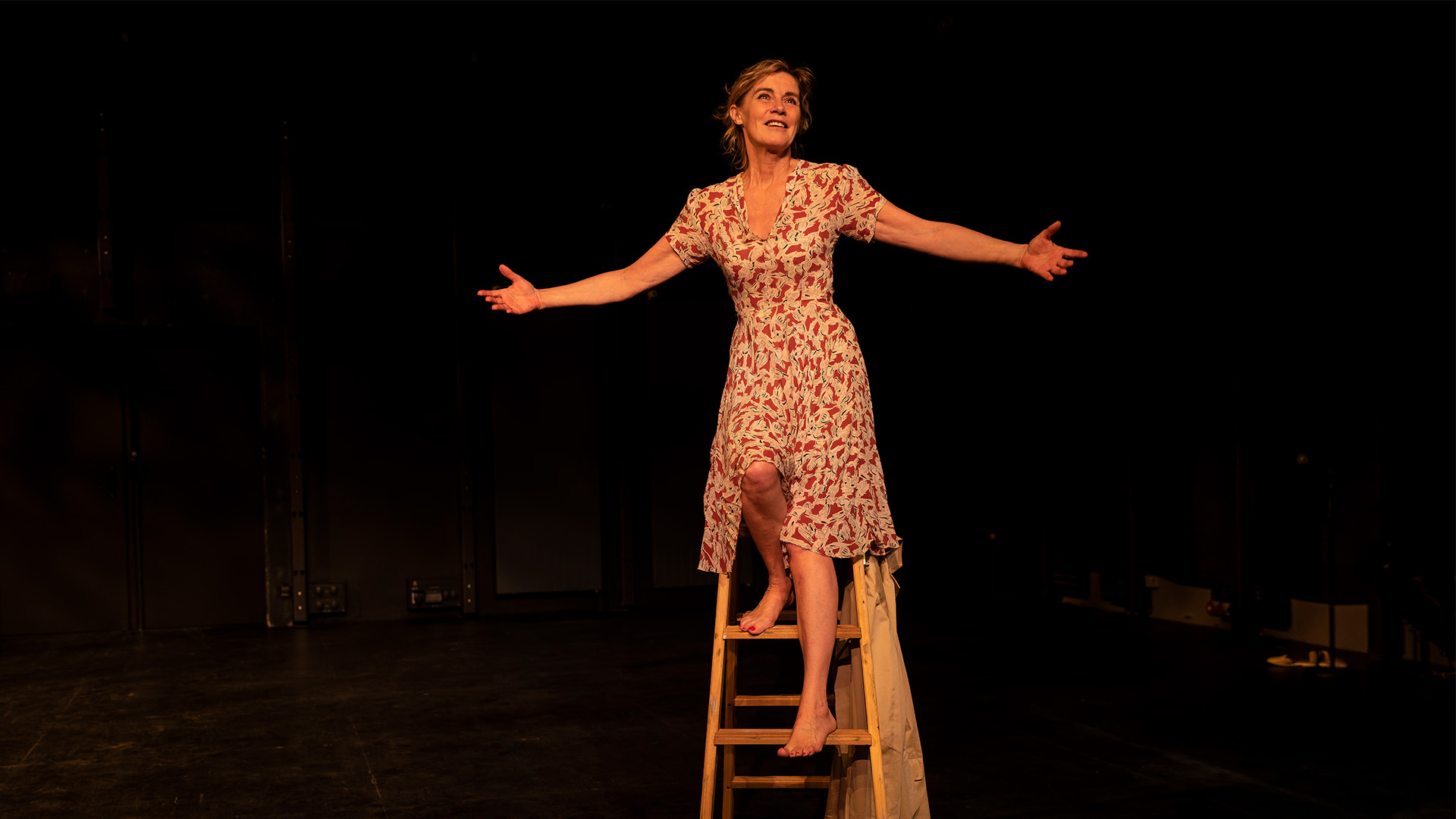Anne Consigny felt an urgent need to embody this anonymous woman, to give voice to a “universal” destiny and struggle. According to the well-known performer, “Performing Un barrage contre le Pacifique today goes beyond the undeniable artistic aspect. It’s about giving voice to the most beautiful French language, the most beautiful attention to the human soul and all its contradictions, its weaknesses, its hidden strengths, everything that the human soul knows how to hide from itself and its loved ones, Marguerite Duras reveals to us with a virtuosity, a delicacy of which I could never tire.”
1931, in southern French Indochina, a woman lives alone with her two children. She has saved for 15 years to buy a concession that will prove to be uncultivable, inexorably drowned by what she insists on calling the Pacific Ocean. Alone on stage, Anne Consigny becomes a vibrant chorus. She moves from one character to the next with unrivalled dexterity and economy of means, delivering a remarkable performance. More than ever, performing this work is a political and feminist act.

